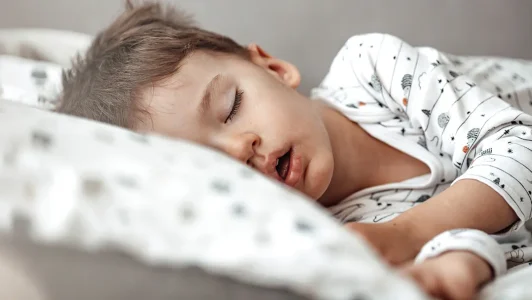Snoring Noisy Breathing

SNORING/OBSTRUCTIVE SLEEP APNOEA IN CHILDREN
Snoring or breathing noisily can happen in children when they are having a flu, poorly controlled nasal allergy or when they are feeling very tired. However, if your child is consistently snoring nightly, it could also be a sign of Obstructive Sleep Apnea.
When we sleep, the airways at the back of our nose and throat become narrow at times, resulting in snoring or noisy breathing. However, in cases of obstructive sleep apnea, the airways become so narrow to the point where it obstructs the flow of air and makes it difficult for the person to breathe. This can result in snoring or noises during breathing, and sometimes may cause the person to jolt awake with a gasp due to lack of air.
Here are some signs of Obstructive sleep apnea in children you can look out for:
- Hyperactivity during the day
- Irritability or sleepiness during the day (due to disturbed sleep)
- Mouth breathing
- Snoring or noisy breathing
The cause of obstructive sleep apnea in children is commonly due to anatomic obstruction from enlarged adenoids and tonsils. A small percentage of children who have poor muscular tone, jaw abnormalities or upper airway abnormalities, can get obstructive sleep apnoea as well. Children need to be evaluated with an overnight sleep study to see if they indeed have sleep apnoea, and if yes the severity of it.
Following a firm diagnosis of obstructive sleep apnoea, your ENT doctor may recommend a few treatments:
- Controlling allergic rhinitis or any nasal obstruction
- Tonsillectomy or adenoidectomy if they are enlarged
- Life style measures
- CPAP (continuous positive airway pressure): a special mask that pumps air at a certain pressure to maintain patency of airway passages during sleep.



